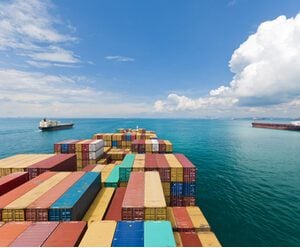在整個非洲,聰明的年輕人每天都在努力創造一個更美好、更環保、更繁榮的未來。從人口統計學上看,非洲大陸的人口比其他任何地方都要年輕—— Ouagadougou夥伴關係估計,從今天到2050年,非洲將佔世界人口增長的一半以上。
這些年輕人渴望發揮他們的能量、創造力和創新,所以自然而然地,創業精神也在不斷上升。根據Tony Elumelu基金會(TEF)和斯坦福大學的綜合研究,在世界上其他地方達到工作年齡的成年人中,非洲目前擁有的 創業者的比例是最高的。
為了獲取最好的機會在商業上取得成功,並在他們所在的地區做出真正意義上的改變--特別是在新冠疫情之後--新興的創業者將需要考慮一系列的複雜問題。以下是非洲下一代創業者要面臨的五個挑戰和機遇。
跨越國界的思考
長期以來,非洲的邊界一直是限制發展的因素。這些邊界以完全任意的方式縱橫交錯在非洲大陸上,其中許多都是歐洲和美國殖民國家在1884年柏林會議上強加的。後來,這些邊界幾乎沒有變化,它們繼續分割著當地的文化、種族和語言群體,對合作和商業構成了障礙。
雖然邊界限制了非洲人民決定其未來的能力,但最近的非洲大陸自由貿易區(AfCFTA)承諾了一個更好的未來。各種規模的企業,從小型企業到跨國企業,現在都可以不受限制地在非洲各地進行貿易。聯合國非洲經濟委員會 預計,到2022年,該協議將推動非洲內部貿易增長52%。
削減繁文縟節和結束關稅使得下一代企業家處於改變非洲大陸的絕佳時機。為了獲得最佳的成功機會,我建議各個企業跳出條條框框,利用非洲自由貿易區提供的新的自由來尋找嶄新的無窮無盡的機遇。
擺脫陳腐模式,迎來嶄新的數字時代
據布魯金斯研究所統計,自2000年以來,非洲大陸的互聯網用戶數量已經增長了50倍。同樣的數據表明,移動技術為非洲大陸提供了170萬個工作崗位和1440億美元的經濟收入,約佔其GDP的8.5%。
在敦豪,我們正在努力實現系統化的數字化進程。作為2025年戰略的一部分,我們將為所有類型的企業提供最佳的物流體驗。敦豪Saloodo!已經是第一個在阿拉伯半島和北非之間提供公路貨運連接的數字市場,利用技術使流程中的每一步都更加透明。
我們最近還擴大了我們的數字平台,myDHLi,它為客戶提供了對海運和空運的全面可視性和控制。該數字平台使得獲取報價、預訂和跟踪貨物,甚至審查文件和分析變得簡單,推動在線預訂量增加了56%。
非洲大陸蓬勃發展的科技產業也對新冠肺炎疫情做出了令人刮目相看的反應--世界衛生組織報告顯示,為應對新冠肺炎疫情而開發的所有新技術或改進技術中,有12.8%是來自非洲。
即使非技術企業也能通過利用現代技術而受益。數字化通過前所未有的方式對企業進行了精簡、簡化和整合。例如,總部設在南非的包容性玩偶製造商Malaville Toys利用社交媒體和電子商務吸引了作為收藏家的國際受眾。
然而,可承擔的互聯網接入和可靠的電力仍然是主要問題。企業家、企業和政府將共同發揮作用,確保非洲大陸的每個人都有機會接觸到科技。反過來,這將進一步拓寬企業家的市場,刺激經濟的發展。
物流:讓世界變小
目前,世界比以往任何時候都更加緊密相連,未來的企業家需要了解他們所做的一切都是基於一個全球化的背景。在敦豪,我們不斷提醒自己要進行“全球化思考和本地化行動”。放眼大局之後,原本看不見的機會將會浮出水面,比如將商品銷售到成熟的海外市場。
例如,我們的GoTrade計劃使得企業從本地銷售拓展到利用我們物流網絡的力量進行的全球銷售。現在,以前在全球化方面落後的非洲國家的中小型企業可以在發達市場獲得無數的新機遇。
物流是推動全球發展的引擎,可在區域之間建立聯繫,打造跨境貿易途徑,創造新的機會並促進經濟發展。下一代的一些企業家將與我一起從事物流行業,我建議這些企業家要與敦豪等有豐富市場經驗的企業建立聯繫。
目前,埃塞俄比亞有大量的企業家加入物流行業。然而,該國快速發展的行業仍在努力採用全球標準--這是一個小小的阻礙,但可能影響其增長速度。在敦豪,我們與世界貿易組織和其他貿易聯盟合作,為年輕的物流企業家在跨境合規和其他潛在障礙方面提供先機。
為成長中的企業提供資金
尋求資金是許多企業快速成長或支付關鍵時期費用的方式。去年的非洲科技初創企業資金報告顯示,非洲大陸的企業--尤其是肯尼亞、埃及、尼日利亞和南非的企業--能夠從投資者那裡吸引到的資金數額有了顯著的提升。
除了傳統的融資手段,如銀行貸款,更加現代化的方式也開始流行:例如,風險投資在非洲越來越受到重視,據估計,今年對非洲企業的總投資將超過22.5億美元。其他正在上升的融資形式包括小額信貸和數字供應商的眾籌,為成長型企業提供了一系列的選擇。
為未來做準備
正如新冠肺炎疫情發出的警告一樣,我們不知道接下來會發生什麼,但在我們考慮到疫情帶來的影響時,我仍然保持著樂觀。非洲的未來是光明的。非洲大陸就像一個蓄力待發的彈簧,充滿了潛力,躍躍欲試。我迫不及待地想見證未來的企業家們是如何塑造未來的。
在不久的將來,關鍵是採用可持續的商業模式、充分利用技術、保持全球思維,並與經驗豐富的合作夥伴攜手合作。和其他地方一樣,在非洲仍然還有很多事情要做,但是非洲年輕人具有決心和創造力,僅此一點就足以讓人們對未來的日子充滿樂觀。
本文作者是敦豪全球貨運中東和非洲地區首席執行官Amadou Diallo。本文最初發表 於此,並經授權轉載。










 繁體中文(香港)
繁體中文(香港)